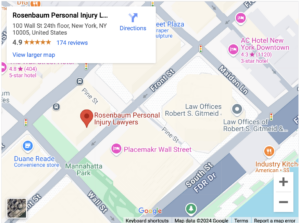Health Care Workers Need To Act To Prevent Medical Errors
Part of the Hippocratic Oath that all doctors must swear when they obtain their licenses to practice medicine is a vow to “do no harm or injustice” to their patients. However, many physicians in the U.S. are not keeping their promises not to harm patients. The U.S. health care system is rife with preventable medical errors, and health care professionals need to make changes to eliminate these mistakes.
Medical errors a widespread problem
Preventable errors have become endemic to U.S. health care. A study conducted by researchers at Johns Hopkins University School of Medicine discovered that surgeons cause approximately 4,000 ” never events” each year. A never event is a completely preventable error, such as operating on the wrong part of the body, leaving a sponge or towel in a patient or performing the wrong surgical procedure.
Researchers examined information from a national database of malpractice claims and determined that about 80,000 never events occurred in the U.S. between 1990 and 2010. The study’s authors estimate that surgeons leave objects in patients after surgery about 39 times a week, perform the wrong surgical procedure about 20 times a week and operate on the wrong part of patients’ bodies about 20 times a week. Experts believe that the study’s estimates are conservative, given that they are based on data from malpractice claims that were filed and not all errors result in lawsuits.
A 2011 study published in the journal Health Affairs showed that medical errors cost the U.S. about $17.1 billion in Medicare payments in one year alone, and caused about 250,000 patient deaths.
Preventing medical errors
Experts believe that the most important step to reducing never events in health care is to document the extent of the problem. Many hospitals’ voluntary reporting systems miss most “adverse events,” which include never events and problems not as easily preventable such as infections. Similarly, software the federal Agency for Healthcare Research and Quality uses to screen Medicaid and Medicare patients’ records to assess hospital performance misses nine out of 10 errors, according to a study conducted by the patient safety organization Pascal Metrics.
In addition to finding out how many medical errors actually occur each year, the information needs to be made public. People would know if hospitals kept making the same mistakes and hospitals would have incentive to improve performance. The Pascal Metrics study also revealed that third-party review of medical records to find triggers for errors can also reduce the number of mistakes that cause harm to patients.
Talk to an attorney
Never events are unacceptable. When health care workers make mistakes that cause patients to suffer, they need to be held accountable. If you have been injured because of a medical error, speak with an experienced medical malpractice lawyer before agreeing to any kind of settlement with the health care provider. An attorney can help ensure that you will be fully compensated for your losses.
Contact the New York City Personal Injury Law Firm of Rosenbaum Personal Injury Lawyers for Help Today
If you’ve been injured in an accident in Manhattan, NY, and need legal help, contact our personal injury lawyers at Rosenbaum Personal Injury Lawyers to schedule a free consultation. We also serve in Brooklyn and the Bronx.
Rosenbaum Personal Injury Lawyers – New York City Office
100 Wall St, 24th Floor
New York, NY 10005
(212) 514-5007
Our firm is located near you. We have an office in NYC
Find us with our GeoCoordinates: 40.7051415,-74.0067386
Rosenbaum Personal Injury Lawyers – Bronx Office
1578 Williamsbridge Rd suite 3b
Bronx, NY 10461
(929) 447-2347
Our firm is located near you. We have an office in the Bronx
Find us with our GeoCoordinates: 40.8468944,-73.8483118
Rosenbaum Personal Injury Lawyers – Brooklyn Office
32 Court St #704
Brooklyn, NY 11201
(718) 550-3601
Our firm is located near you. We have an office in Brooklyn
Find us with our GeoCoordinates: 40.692948,-73.991038



